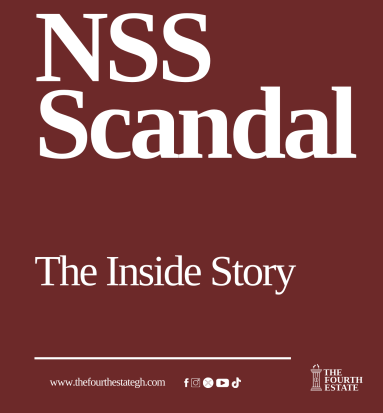Since its inception in 2021, the Next Generation Investigative Journalism (NGIJ) Fellowship, an initiative of the Media Foundation for West Africa (MFWA) has trained 53 early and mid-career journalists from Ghana, Sierra Leone, and Liberia to pursue impactful investigative reporting that drives accountability and social justice.
Through a carefully designed programme that combines expert-led training, mentorship, and practical fieldwork, fellows are equipped with skills in investigative reporting, fact-checking, data journalism, mobile journalism, and story presentation. The Fellowship has explored critical themes including anti-corruption, illicit financial flows (IFFs), election reporting, and the extractive sector.
In the 4th and 5th cohorts which were supported by DW Akademie and NORAD through Oxfam in Ghana, respectively, fellows produced compelling stories that brought attention to the realities of marginalised groups, the human cost of illegal mining, and challenges in local development planning among others.
One such story is “How Bole District Assembly Wasted Money on a Market No One Wants” by Osman Abubakari Sadiq. He revealed how the Bole District Assembly spent approximately GHS 148,909 constructing a 12-unit market on the outskirts of Sonyo, a facility that remains unused and overgrown. The contract was awarded through sole-sourcing, in violation of procurement regulations, and without community consultation. Osman’s story is a compelling example of how investigative journalism can hold local authorities to account and highlight the importance of inclusive development planning.
In an informative piece, Elizabeth Abena Egyin sought to elevate public awareness by providing expert analysis on the pivotal topics that would drive voter decision-making in the December 2024 presidential and parliamentary elections. In “ELECTION 2024: Which issues will shape your vote? Experts share what to consider,” she engaged analysts who highlighted several critical concerns influencing Ghanaian voters ahead of the elections.
These issues range from illegal mining (galamsey), described by one expert as an “ecocide”, to economic hardships, youth unemployment, reforms in free senior high school and education, and growing public safety concerns. Each of these issues is prominent in political discourse, shaping citizens’ expectations and informing their vote choices.
In “Akosombo Dam Spillage: PWDs Hit Hard, Cry for Help,” Bertha Demah reveals how persons with disabilities (PWDs) were disproportionately affected by the September 2023 Akosombo Dam spillage, yet largely overlooked from relief interventions. The story brings to light the systemic failure to include vulnerable populations in disaster response planning and calls for inclusive, rights-based emergency support structures.
Seraphina Quaicoe, in her piece “Fatherless Children of the Mines,” explores the lives of children born to Ghanaian women and Chinese miners in Wassa Amenfi in the Western Region of Ghana. These children, caught between cultures, have been abandoned by their fathers and now struggle with identity, poverty, and neglect in communities devastated by unregulated mining. The story calls for the urgent need for social protection, regulation of foreign mining activity, and national attention to the human cost of extractive ventures.
From the Upper East Region, Sulemana Zakaria reports on “Tongo’s Mining Boom: The Human Cost Beneath the Glitter.” His story captures how the gold rush has disrupted community life—pushing girls out of school due to teenage pregnancies and luring boys into unsafe mining work. The piece highlights the broader consequences of unchecked resource exploitation and serves as a powerful reminder that sustainable development must prioritise justice, education, and community wellbeing.
In the recently ended 6th cohort with funding from DANIDA through Oxfam in Ghana, the fellows throw light on illicit financial flows domestic revenue mobilisation and tax justice and other critical issues affecting the quality of life in Ghana.
In “Publicly funded but closed to the public: Ghana’s premium hospitals shut out NHIS patients,” Prince Ato Kwamena Koomson tells a story that resonates with the many Ghanaians who seek medical attention using the National Health Insurance Scheme. It exposes systematic injustice by shedding light on how publicly-funded hospitals exclude the very citizens whose contributions helped build them, undermining the promise of universal health coverage.
By naming institutions, tracing funding sources, and highlighting policy gaps, the story pushes for transparency in how health infrastructure and insurance systems operate. It raises questions such as: Who is the state building for? Why do some public hospitals avoid NHIS? What does access to health care really mean? Koomson’s story gives voice to ordinary citizens frustrated by being turned away despite holding valid NHIS cards.
In another story shedding light on domestic revenue mobilisation practices of some municipal and district assemblies in Ghana, Mark Kwasi Ahumah Smith reports that several municipal/district assemblies in Ghana are spending more on salaries for revenue collectors than they are able to collect in internally generated revenue.
“Domestic Revenue Mobilisation: Suame, other assemblies spend more money to collect less” identifies several factors contributing to poor performance: lack of accurate data on ratepayers and businesses, weak enforcement of bye-laws, political interference, inadequate supervision, and payment systems that reward staff regardless of results.
The situation has led to a cycle of low productivity and persistent revenue leakages. The story argues that the inefficiencies undermine fiscal decentralisation and weaken the ability of local governments to deliver essential services. It calls for reforms including digitisation of revenue collection, performance-based remuneration, stronger monitoring, and greater public accountability to ensure that local assemblies collect and manage funds more efficiently.
In another breath, Winifred Lartey’s story, ‘Fake tax collectors bleed Accra traders dry’ exposes the fraud taking place in Ghana’s informal market sector, illustrating how traders are exploited by impostors masquerading as official revenue collectors. These impostors demand cash payments, present forged receipts, and disappear. The human cost is more than financial. Victims report a loss of trust in the system, fear of official authority, and economic vulnerability (missed rent, lost stock) when extorted.
The story raises public awareness of the mechanisms of the scam so traders and citizens can better recognise when an official demand is legitimate and when it isn’t. It is a call for authorities to accelerate digitalisation of payments, strengthen enforcement, improve collection transparency and protect vulnerable informal-sector workers from such scams. By showing how misuse of the system erodes confidence in formal authorities, the article calls for accountability and better protection for ordinary traders.
Prinsella Vera Aidoo and Mark Kwasi Ahumah Smith join hands to author ‘Mobile money robberies: Inside Ghana’s rising cybercrime wave’. Mobile-money services in Ghana, once praised for boosting financial inclusion, are now heavily targeted by fraudsters. The fellows highlight the scale and severity of mobile-money and fintech-related cybercrime in Ghana not just as isolated incidents, but as part of a growing systemic risk as the economy digitises.
They also advocate for greater public awareness and protective measures, encouraging users to report fraud quickly, adopt safe practices, and push service providers to strengthen security. The loss of livelihoods, erosion of trust in digital platforms, and weak institutional resilience against emerging threats paint the human cost of digital fraud. The story serves to call the attention to regulatory gaps and the urgent need for stronger oversight, coordination between telecoms and law-enforcement, and improved fraud-prevention infrastructure.
These stories told by the fellows reflect the core mission of the NGIJ Fellowship: to produce journalism that gives voice to the voiceless and drives institutional accountability.
You can read more stories by the first cohort here and the second cohort here.
About the NGIJ Fellowship
Since its inception in 2021, the Next Generation Investigative Journalism (NGIJ) Fellowship has nurtured early-career journalists from across West Africa to produce impactful, fact-based, and accountability-driven stories. The Fellowship equips participants with investigative journalism, data journalism, and multimedia storytelling skills.
Fellows are selected through a competitive process involving aptitude tests and interviews and are hosted in Ghana for a three- to six-month intensive programme. Training includes mentorship with journalists from The Fourth Estate and Fact-Check Ghana, two MFWA public-interest journalism projects that promote transparency and accountability through evidence-based reporting.






